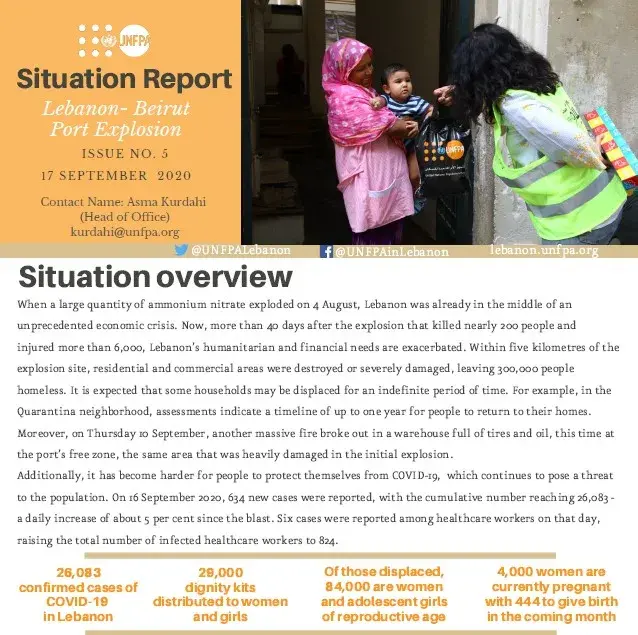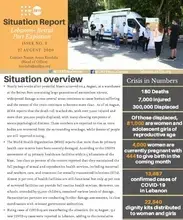When a large quantity of ammonium nitrate exploded on 4 August, Lebanon was already in the middle of an unprecedented economic crisis. Now, more than 40 days after the explosion that killed nearly 200 people and injured more than 6,000, Lebanon’s humanitarian and financial needs are exacerbated. Within five kilometres of the explosion site, residential and commercial areas were destroyed or severely damaged, leaving 300,000 people homeless. It is expected that some households may be displaced for an indefinite period of time. For example, in the Quarantina neighborhood, assessments indicate a timeline of up to one year for people to return to their homes. Moreover, on Thursday 10 September, another massive fire broke out in a warehouse full of tires and oil, this time at the port’s free zone, the same area that was heavily damaged in the initial explosion.
Additionally, it has become harder for people to protect themselves from COVID-19, which continues to pose a threat to the population. On 16 September 2020, 634 new cases were reported, with the cumulative number reaching 26,083 - a daily increase of about 5 per cent since the blast. Six cases were reported among healthcare workers on that day, raising the total number of infected healthcare workers to 824.




